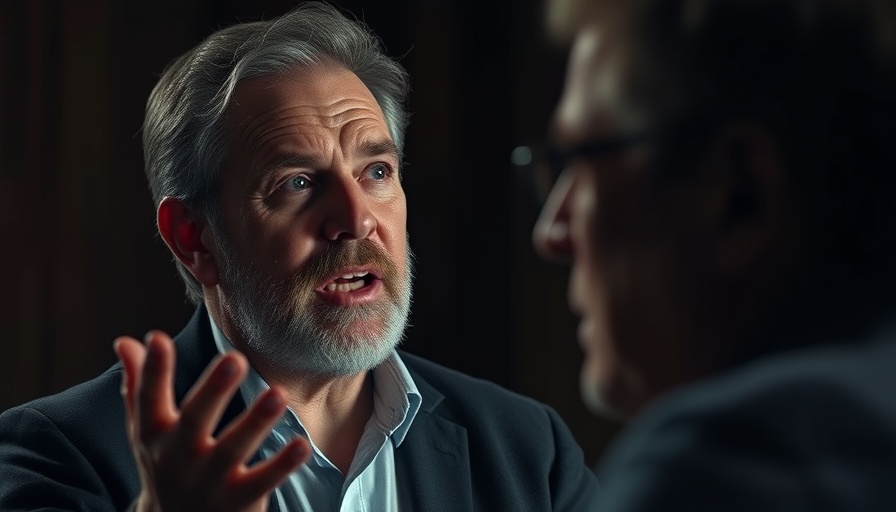
The Transformative Power of Meaning Making
Tony Robbins shares a profound insight: "The minute you give it a meaning, you've got emotion." This statement encapsulates the essence of personal development—how the way we interpret our experiences shapes our emotional and psychological landscapes. For Robbins, the stark contrast between his life and his father's hinged on the meanings they assigned to their struggles. While his father wallowed in despair over their financial issues, Robbins chose to focus on the sliver of hope represented by community kindness. This distinction is pivotal for executives and entrepreneurs seeking resilience in high-stress environments.
In 'I Wouldn’t Be Here Without That Pain...', Tony Robbins examines how personal struggles can be catalysts for growth, prompting us to explore these key concepts further.
Understanding Emotional Decisions
Robbins reveals the dynamics of emotional decision-making, where our feelings drive our choices. Many professionals face critical decisions influenced by stress or fear. However, harnessing the ability to reshape the narrative we're telling ourselves can dramatically alter outcomes. For instance, instead of viewing challenges as insurmountable, understanding them as opportunities can switch an executive's mindset from panic to proactive problem-solving.
Lessons from a Personal Journey
Robbins’s upbringing was fraught with challenges—from financial difficulties to violent familial interactions. His resilience emerged not just from these hardships but also from the decisions he made to seek help and transform his life. He credits Jim Rohn’s seminar as a turning point, illustrating the importance of mentorship and guidance. For today’s leaders, investing in personal and professional development, even when finances are tight, can yield transformative returns.
The Role of Values in Business and Life
In his argument, Robbins highlights that while everyone is equal as humans, that equality doesn't manifest in financial success. This realization forces executives to reflect on their roles in the marketplace. Are they merely striving for profit, or are they committed to adding value into the lives of their customers? Understanding one's values can lead to a better organizational culture, turning companies into purpose-driven enterprises aligned with their clientele's needs.
The Importance of Community Connection
Robbins's story underscores the power of community. At a young age, he recognized not just the struggles of his family, but also the kindness shown by strangers. This revelation—"Strangers care"—dismantled a long-held belief that people are inherently indifferent. For modern leaders, nurturing community relationships can yield beneficial networks and partnerships that may lead to new opportunities for collaboration and support.
Persistence and Practical Psychology
The anecdote of Robbins turning around individuals with severe phobias showcases the application of practical psychology in everyday life. Learning to observe behavior and adapt strategies based on psychological principles can empower business leaders to influence employee productivity positively. Employing methods from neuro-linguistic programming (NLP), executives can help teams optimize their performance through better communication and emotional awareness, ensuring that stress doesn’t hinder productivity.
Creating a Legacy Beyond Personal Pain
Robbins's emotional journey illustrates that personal pain can be a catalyst for positive change, not a hindrance. He emphasizes that one's biography does not dictate destiny. This perspective invites business leaders and entrepreneurs to carve their paths by utilizing their past experiences to fuel their future intentions. Instead of being “used by” personal history, they can choose how to turn it into a driving force for success.
Final Reflections and Takeaways
Through Robbins's life and insights, we find an inspiring narrative centered on resilience, meaning-making, and community connection. Executives and entrepreneurs are encouraged to seek connections within themselves and their communities, viewing challenges as opportunities to refine their values and increase their contributions to society. Such a shift not only nurtures personal growth but also enhances business practices and leadership styles.
If you're ready to transform your approach to leadership and life, consider delving deeper into these insights. Reflect on how you respond to adversity and whether your narratives are empowering or limiting. The lessons shared by Robbins hold the potential to inspire profound changes in both personal and professional capacities.
 Add Row
Add Row  Add
Add 




Write A Comment